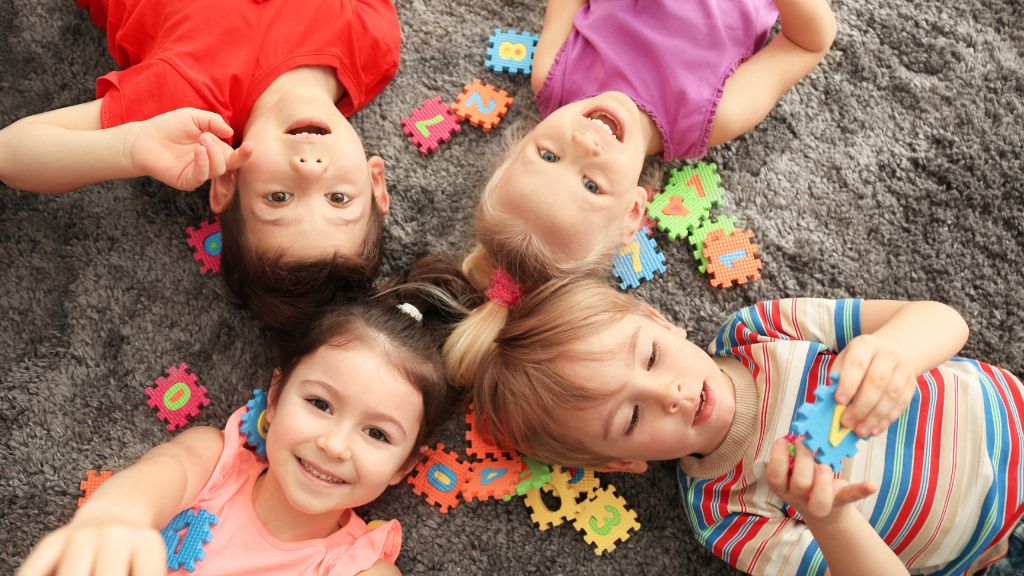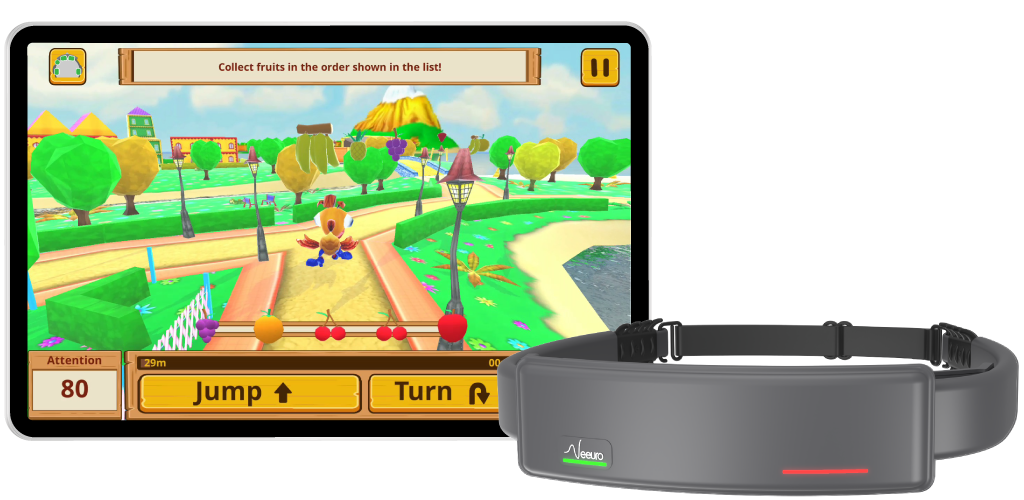Attention Deficit Hyperactivity Disorder (ADHD) is one of the most common neurodevelopmental disorders of childhood. It is usually first diagnosed in childhood and often lasts into adulthood (Centers for Disease Control and Prevention).
ADHD affects one’s ability to focus, control impulses, and regulate their energy levels. As a parent or caregiver, it is essential to recognize the symptoms of ADHD to ensure early intervention and support for your child's well-being.
ADHD in Children and How to Manage It
In this blog, we will explore the three primary symptoms of ADHD in children: Inattention, Hyperactivity, and Impulsivity, helping you gain a better understanding of this condition and how to navigate it.
Inattention
One of the hallmark symptoms of ADHD in children is inattention. However, it is important to distinguish between normal childhood distractibility and clinically significant inattention associated with ADHD. Children with ADHD often struggle to sustain attention, get easily bored with tasks, and have difficulty following instructions. They may frequently lose things, appear forgetful, and have trouble organising their belongings or completing tasks. These behaviours can significantly impact their academic performance and social interactions.
Inattentiveness can manifest in various ways. Children with ADHD may have trouble staying focused during classes, conversations, or while completing homework assignments. They may become easily distracted by external stimuli such as sounds, movements, or other environmental factors. Additionally, they may have difficulty organising their thoughts and tend to daydream or "zone out" frequently. As a result, children with ADHD may struggle to complete tasks on time and meet academic expectations.
To support children with inattentiveness, it is crucial to establish a structured routine and provide clear instructions. Breaking down tasks into smaller, manageable steps can help them stay focused and complete assignments. Minimising distractions in their environment, such as reducing noise or creating a quiet study area, can also be beneficial. Regular communication with teachers can ensure that appropriate accommodations are provided in the classroom setting.
Hyperactivity
Hyperactivity is another key symptom of ADHD in children. While all children can be active and energetic, those with ADHD exhibit excessive levels of hyperactivity that interfere with their daily functioning. They may constantly fidget, squirm, or have difficulty staying seated. Children with ADHD often feel restless and have a constant need to be on the move. They may run, climb excessively, and have difficulty engaging in quiet activities. This restless behaviour can disrupt their ability to concentrate and participate in structured environments, such as school or organised activities.
Hyperactivity in children with ADHD can be challenging to manage, but there are strategies that can help. Providing opportunities for physical activity and exercise can help channel their excess energy in a constructive manner. Structured activities such as sports, dance, or martial arts can help them burn off energy while learning discipline and focus. Additionally, incorporating regular breaks during tasks or schoolwork can help them release energy and maintain attention when needed.
Creating a supportive and understanding environment is crucial for children with hyperactivity. Educators can provide flexible seating options or allow short movement breaks during class. Parents can encourage positive outlets for their child's energy, such as engaging in outdoor activities or playing with age-appropriate toys. It is important to note that while managing hyperactivity is essential, suppressing a child's natural energy levels entirely is neither realistic nor healthy.
Impulsivity
Impulsivity refers to the tendency to act without thinking about the consequences. Children with ADHD often struggle with impulse control, leading them to interrupt conversations, speak out of turn, or have difficulty waiting for their turn. They may engage in impulsive behaviours that are potentially dangerous or inappropriate. Due to their impulsivity, children with ADHD may find it challenging to regulate their emotions, leading to frequent emotional outbursts and difficulty in managing frustration.
Impulsivity can significantly impact a child's social interactions and relationships. It may be challenging for them to take turns, share, or wait patiently, which can lead to conflicts with peers. Helping children develop self-control and manage their impulses is crucial for their overall well-being. Techniques such as teaching them to take deep breaths, count to ten, or use visual aids to understand the concept of waiting can be helpful. Creating consistent rules and expectations at home and school can provide structure and guidance for managing impulsive behaviours.
Strategies and Support for Children with ADHD
Recognising the symptoms of ADHD is the first step in helping your child. If you suspect your child may have ADHD, it is crucial to consult with a healthcare professional or a paediatrician. They can assess your child's symptoms, gather information from different sources, and make an accurate diagnosis. Once diagnosed, various treatment options and strategies can be explored.
- Cognitive and Behaviour Therapy can be an effective approach to help children with ADHD learn appropriate behaviours, improve focus, and develop organisational skills. It may involve setting specific goals, creating structured routines, and providing positive reinforcement.
- Parent–teacher collaboration and Individualised Education Plan (IEP) are crucial in supporting children with ADHD. Open communication between parents, teachers, and other caregivers allows for the sharing of valuable information about the child's symptoms, progress, and challenges. This collaboration helps establish consistent support systems both at home and in educational settings. Additionally, IEP can be implemented if the child's ADHD significantly affects their academic performance. An IEP offers accommodations and modifications tailored to meet the child's specific learning needs, which may include providing additional time for assignments, preferential seating, or implementing other specialised interventions. Together, parent and teacher collaboration, along with an IEP, provide a comprehensive approach to support children with ADHD in their academic journey.
- In some cases, doctors may prescribe medication to manage the symptoms of ADHD. Medications such as stimulants can help improve attention and reduce hyperactivity and impulsivity. However, medication should always be used under the guidance of a healthcare professional.
- Digital Therapeutics (DTx) can be recommended to manage the symptoms of ADHD as an alternative or complementary solution to medication. These innovative and evidence-based digital interventions offer personalised treatment plans and have been shown to provide ample support in improving one's attention levels. Developed by experts, DTx utilises mobile applications or web-based platforms to deliver cognitive training exercises, behaviour modification programs, and interactive tools designed to enhance attention and self-regulation skills.
- Cogo Digital Training Programme is a fantastic example of a clinically proven DTx which uses neurofeedback to provide a personalised programme based on a user's attention. Over 24 sessions, users will learn to regulate their attention levels and impulsivity tendencies so that they will be able to achieve different game objectives.
- Cogo's efficacy was highlighted with the feedback from a partner organisation. Nicholas Gabriel Lim, consultant psychologist of Nigel Psychology, shared that he and his wife were deeply impressed by the transformative outcomes witnessed in their 9-year-old daughter, who had been displaying symptoms of ADHD. The implementation of the curated Attention Adaptation Program (AAP) enabled their daughter to independently engage with Cogo, manifesting a marked improvement in focus without requiring extensive guidance.
- Cogo Digital Training Programme is a fantastic example of a clinically proven DTx which uses neurofeedback to provide a personalised programme based on a user's attention. Over 24 sessions, users will learn to regulate their attention levels and impulsivity tendencies so that they will be able to achieve different game objectives.
Recognizing the symptoms of ADHD in children, including inattention, hyperactivity, and impulsivity, is crucial for early intervention and support.
[For a deeper dive into how these traits emerge in childhood and what caregivers can do, explore our ADHD symptoms guide for children.]
With appropriate diagnosis and a comprehensive management plan, children with ADHD can thrive academically, socially, and emotionally. By working together with healthcare professionals, educators, and caregivers, we can create an environment that enables children with ADHD to reach their full potential and lead fulfilling lives. Remember, each child is unique, and with the right support, they can overcome challenges and excel in their own way.








Leave a Comment